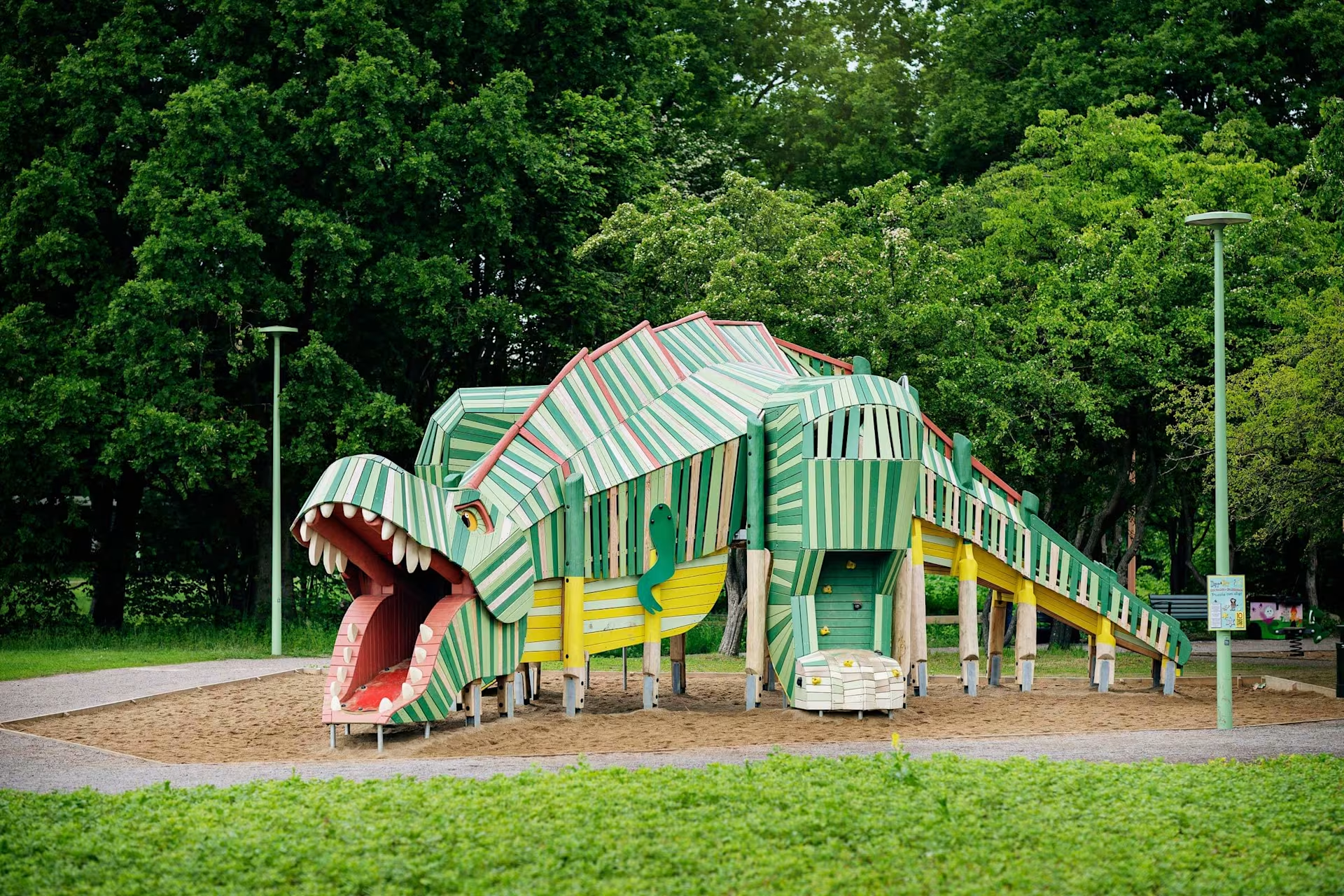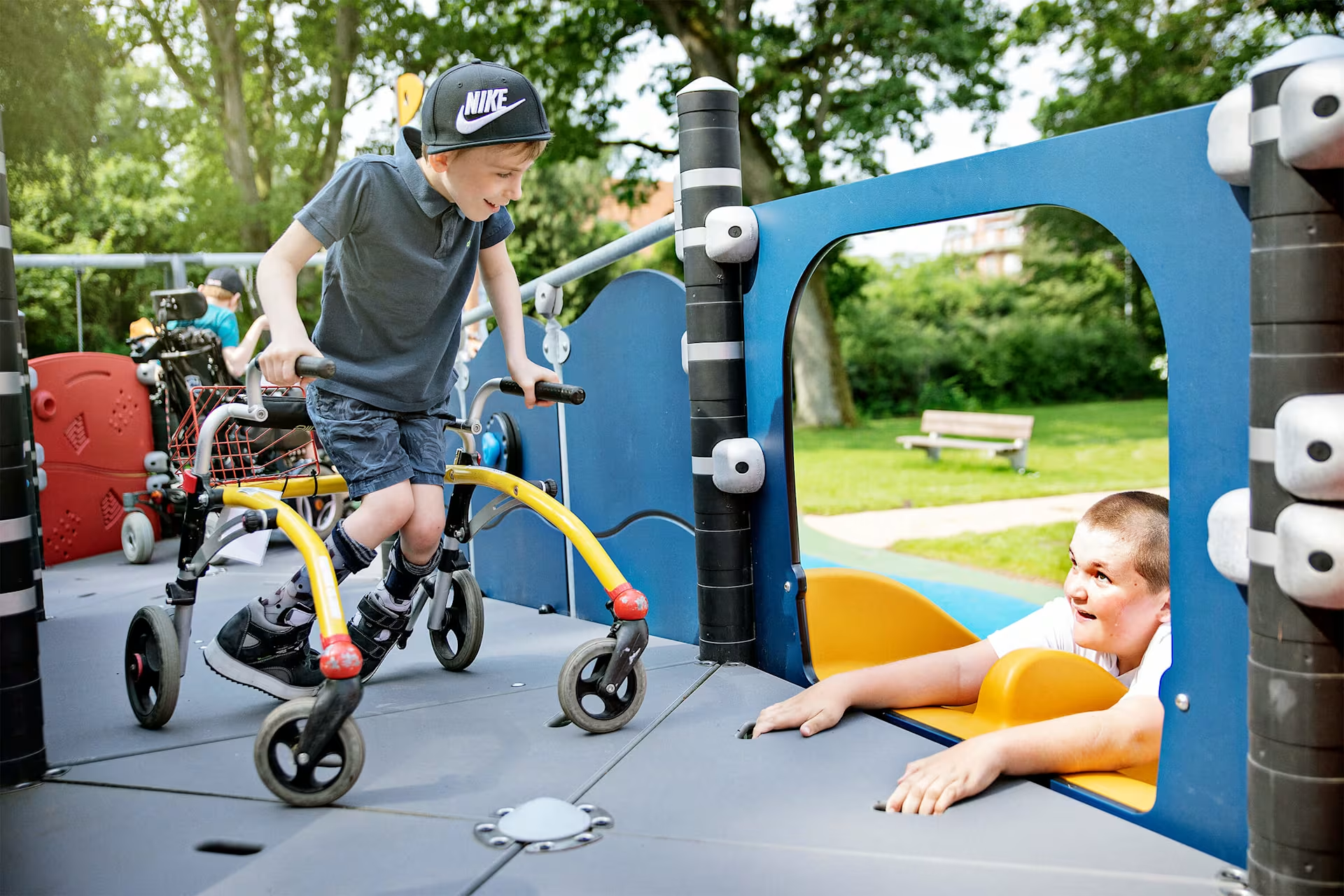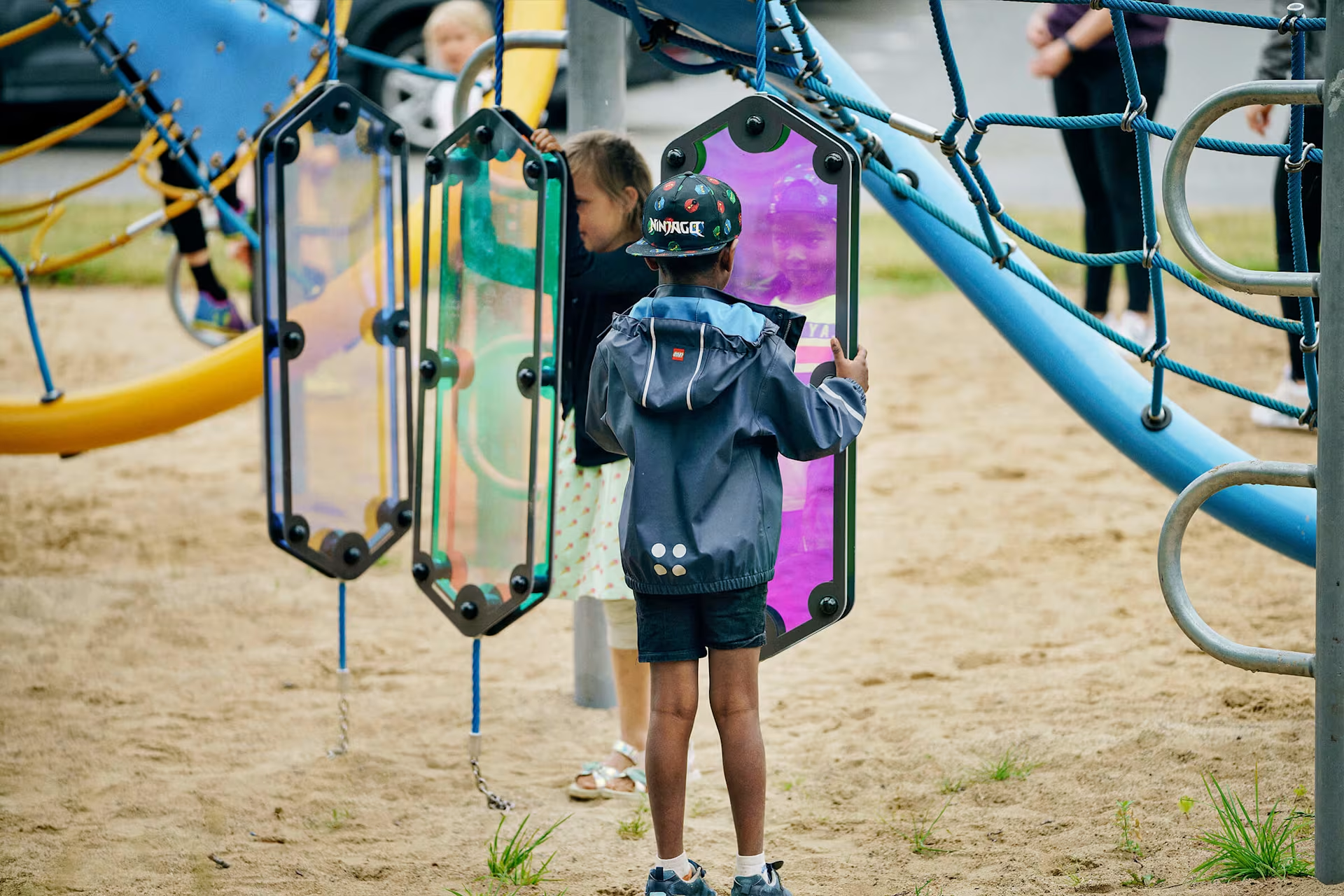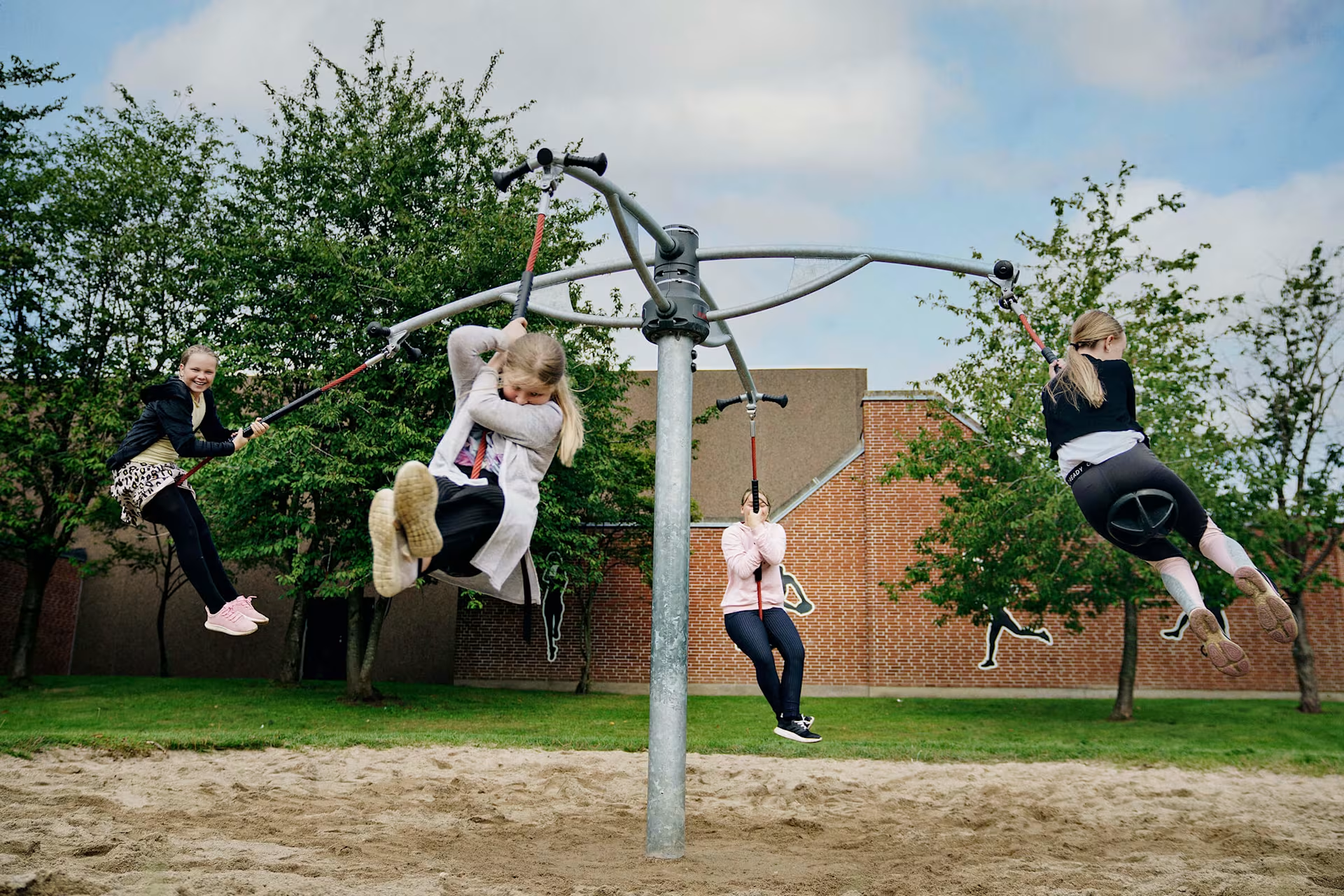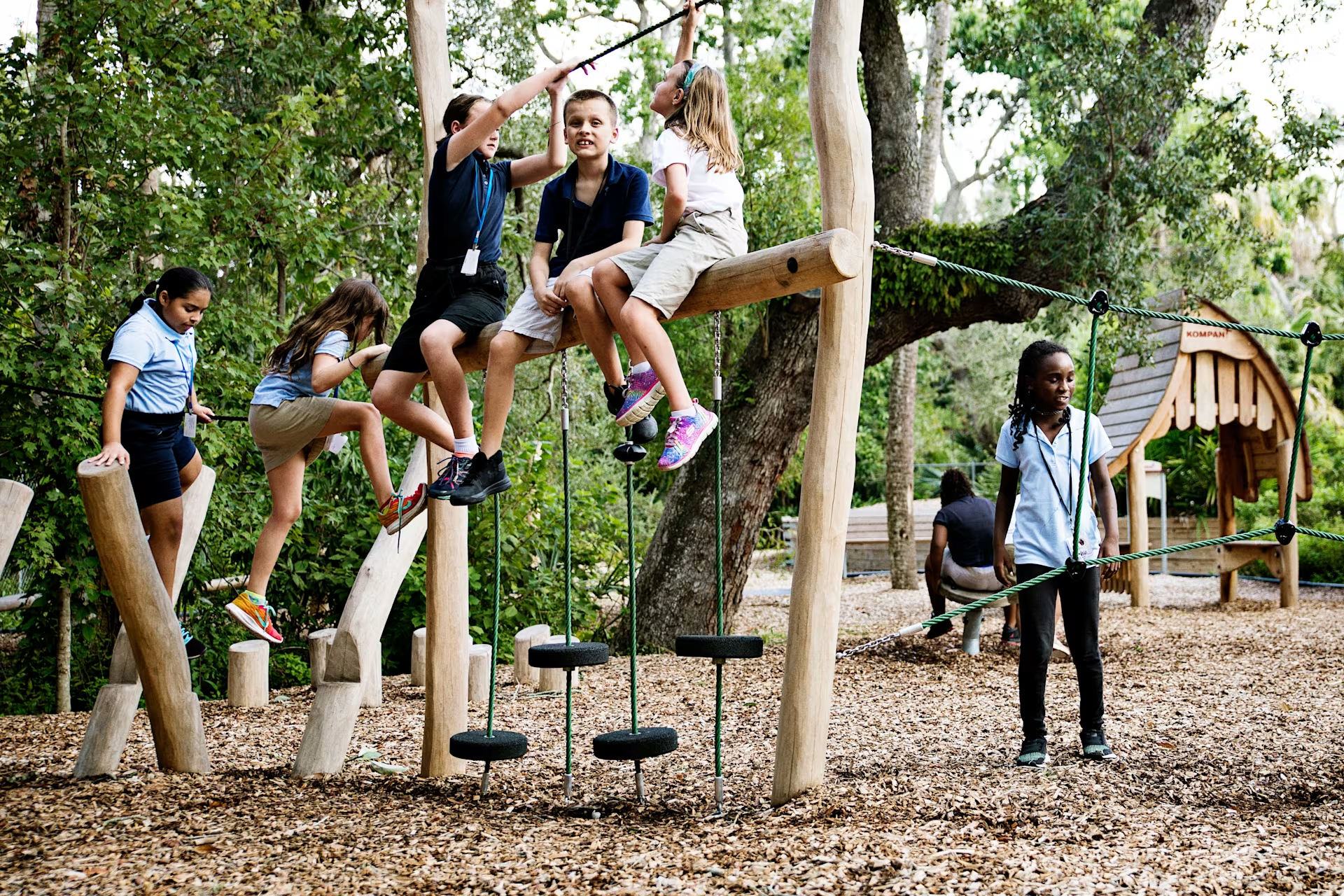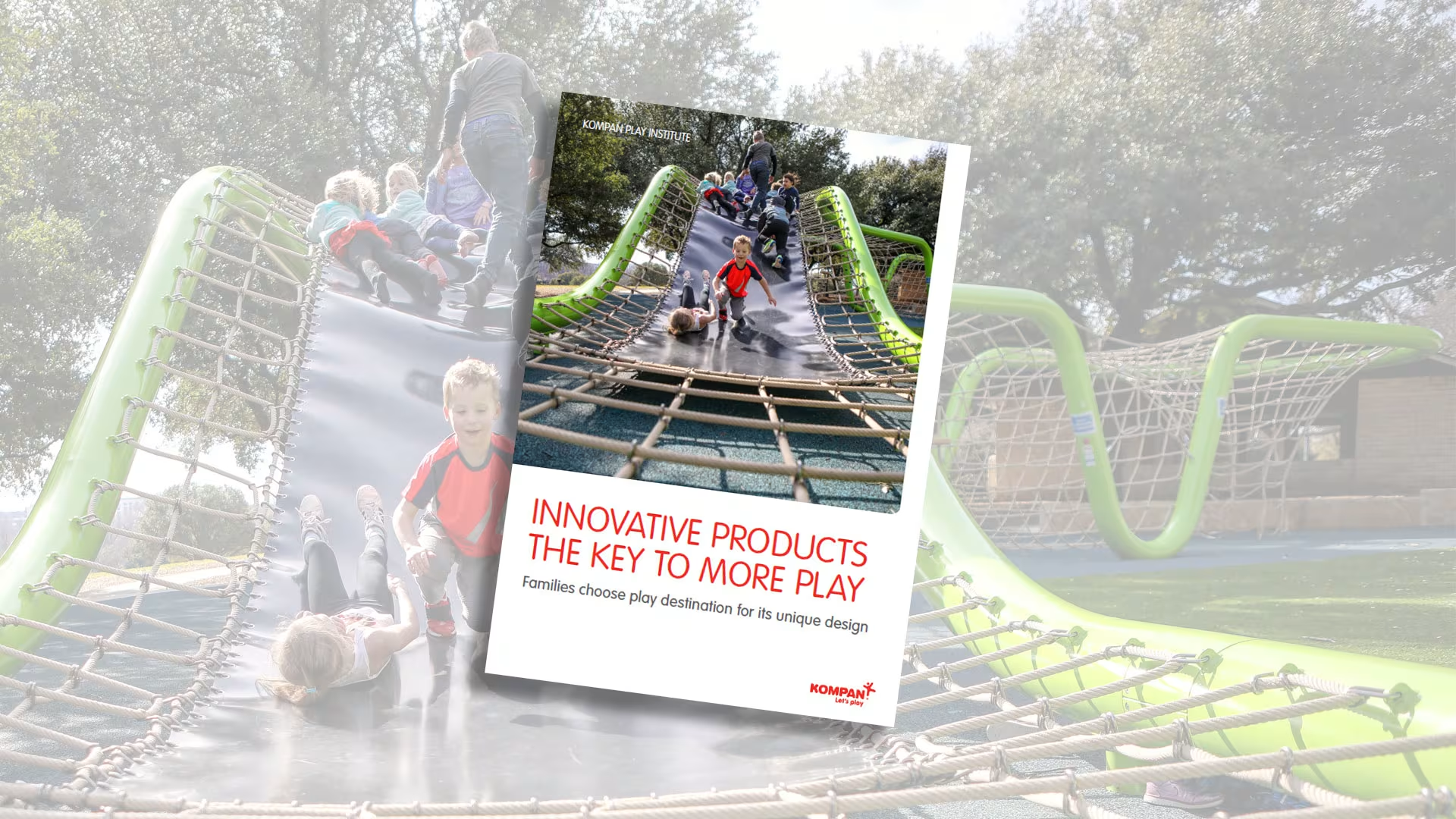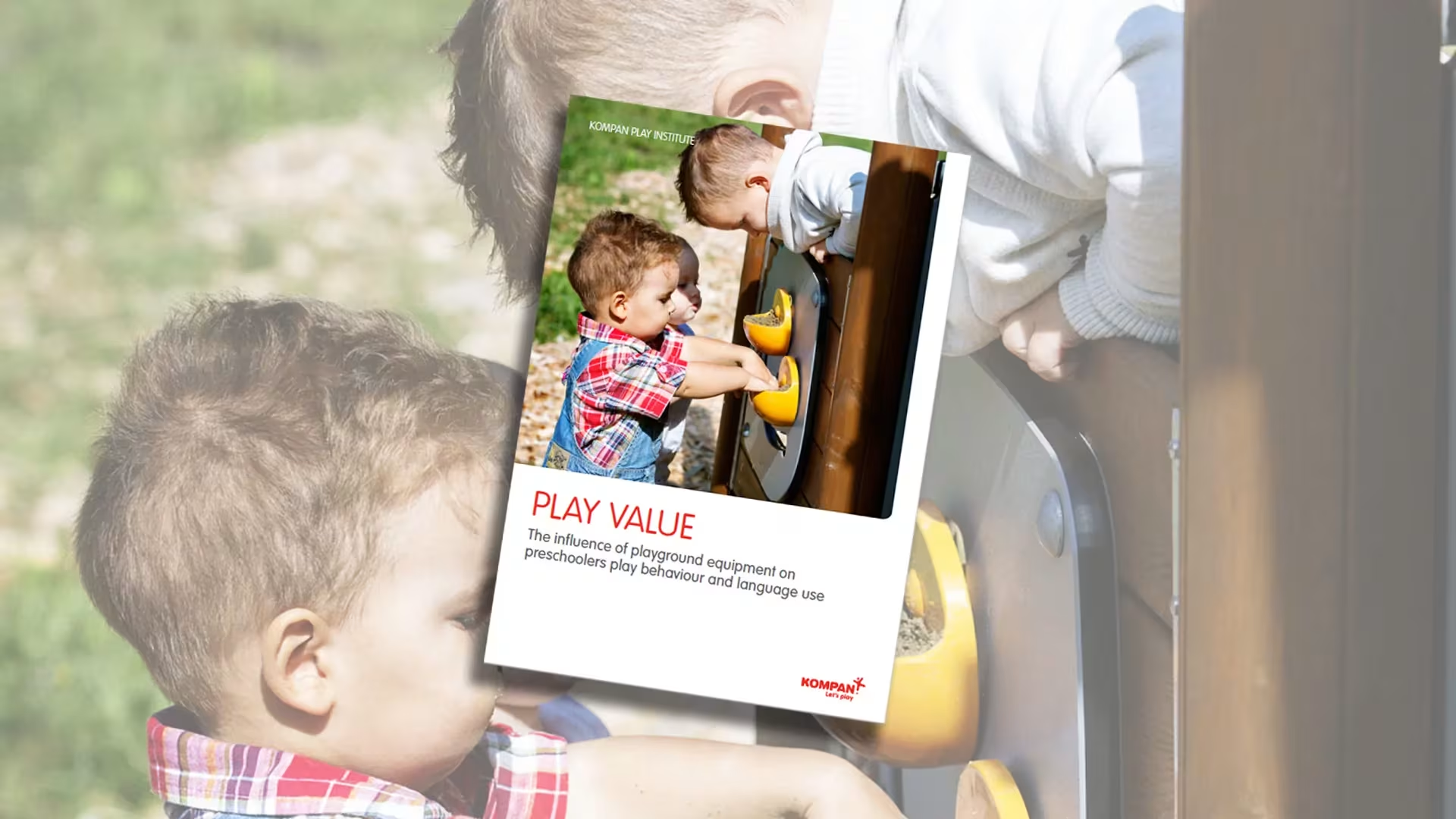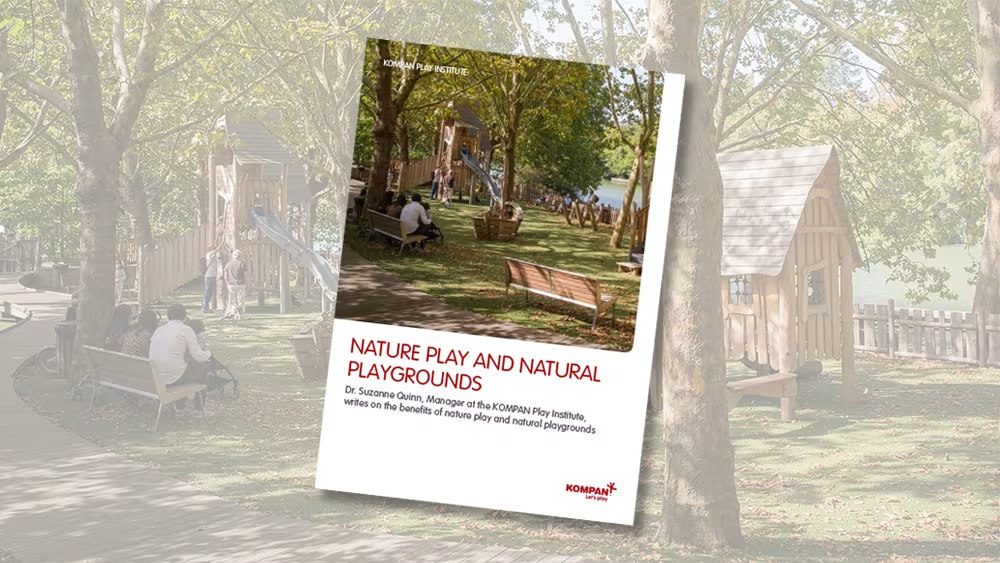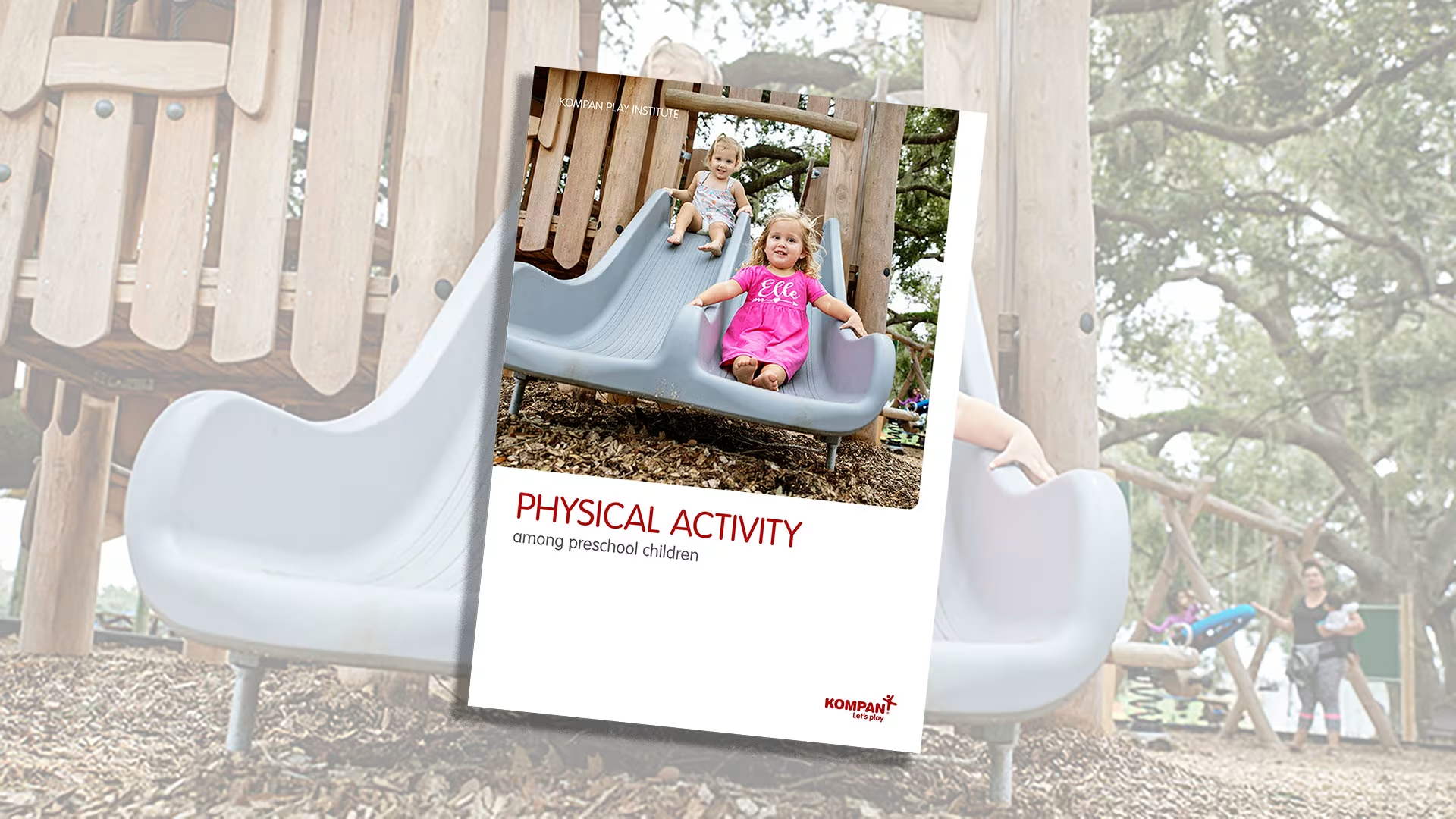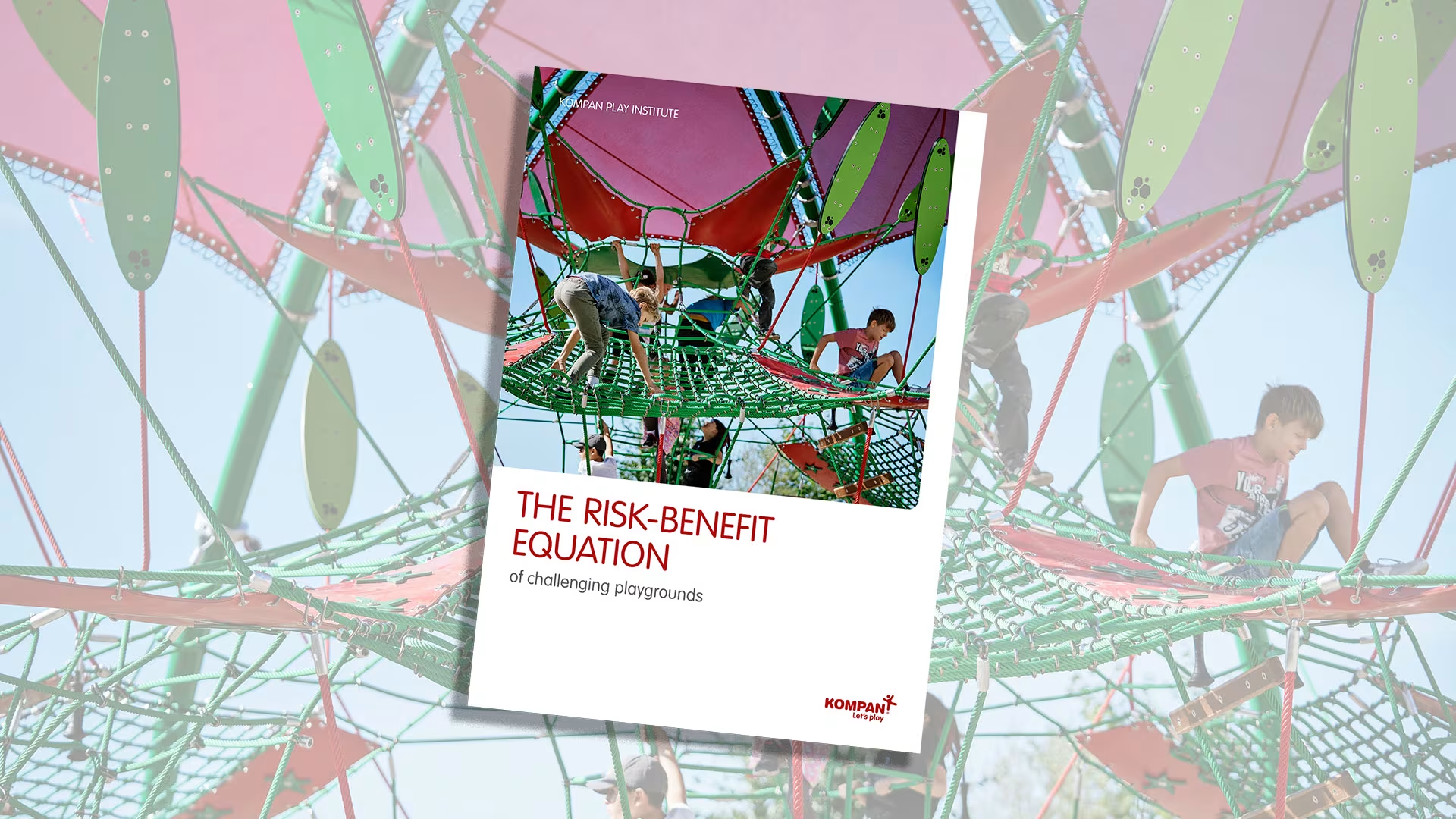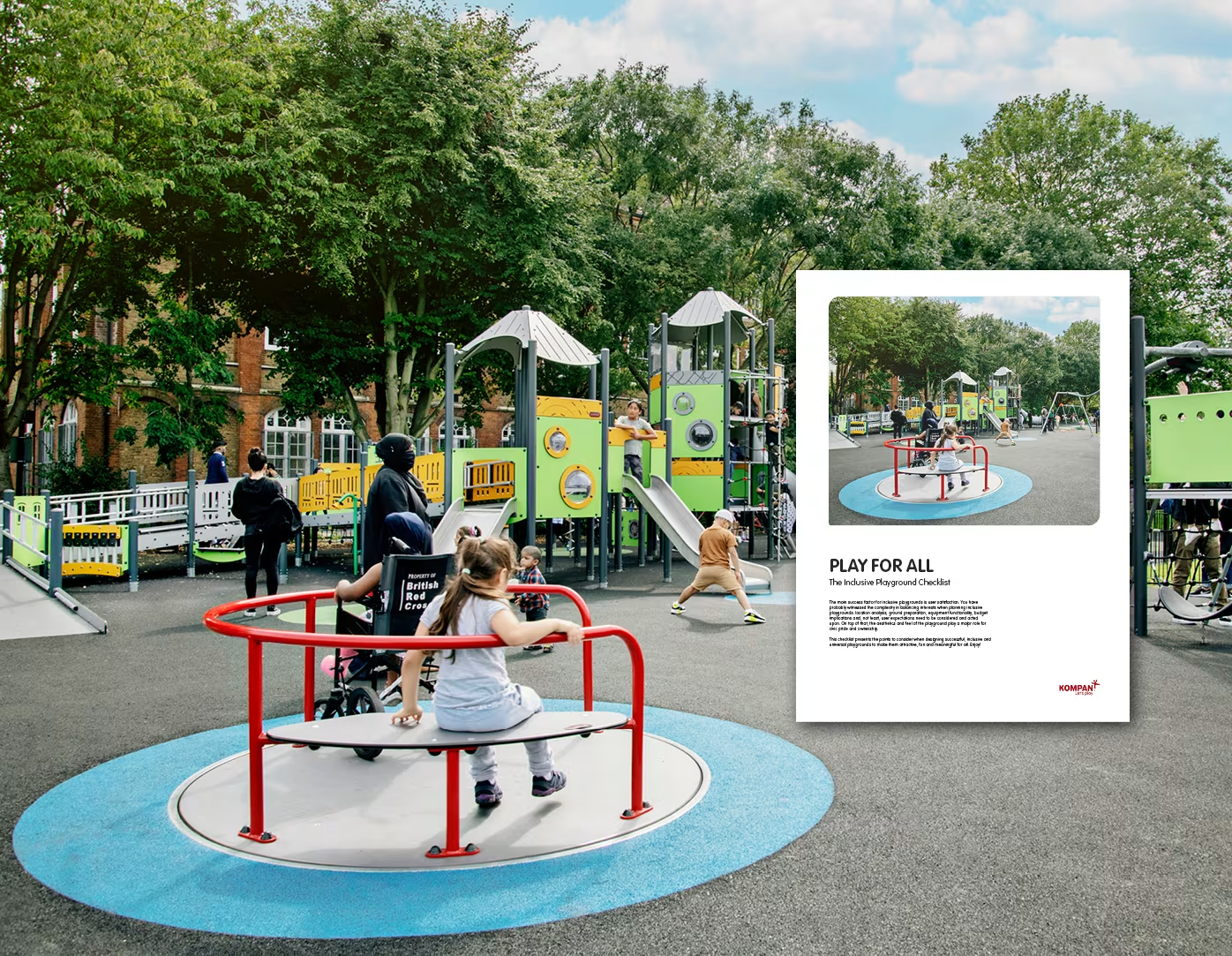White Paper
Sensory Play: The Why, How and What of Sensory Playgrounds

New research from KOMPAN Play Institute on the benefits of Sensory Play in playgrounds
“Play consists of adaptive responses which make sensory integration happen” – A. J. Ayres, 1979
What is sensory play? Have you ever wondered about the way our senses inform our being? When we understand or realise something, we see it. When we get emotional, we are touched and then we feel. Our existence relies upon our senses and how we respond to sensory input.
Sensory play is a broad term as children can make use of any - or all - of their senses whilst playing: touching, seeing, hearing, smelling, and tasting. But to child researchers, sensory play includes two additional senses or systems. The science of sensory integration in child development considers the kinesthetic and the vestibular systems, which are crucial for moving our bodies confidently in our surroundings.
8 Ideas for Sensory Playground Designs
In outdoor playgrounds, the natural surroundings - from the choice of surfacing and planting to the actual play equipment - can provide rich sensory play.
For play equipment, consider surfaces that provide varied structures, temperatures and densities in materials.
Think of play details and equipment that respond to movement, for instance rope nets or smooth scoops that run in grooves.
Combine the tactile input with the visual or auditive. Moiré patterns, dichroic effects or rhythm. Sound and tonal equipment is great for this.
Responsive surfaces such as rollers, or textured surfaces such as turf or rubber flaps, stimulate the sense of touch,. This is especially true for Special Educational Needs playgrounds.
Pay attention to the soothing or invigorating effects of body pressure with varied textured hammocks or other moving surfaces to lie on, both in busy and quiet corners of the playground.
Tactile and visual play elements that can provide both movement, tactile response and creative play are fantastic. This is where the roller log panels and hammocks come into play: children can create patterns or form messages with them.
Sensory play in sensory motor integration: stimulation of the vestibular and kinesthetic systems can be created with bouncy nets, swings, spinners, slides, seesaws, etc.
Newsletter sign up
Fill in the boxes, and you are all set.



